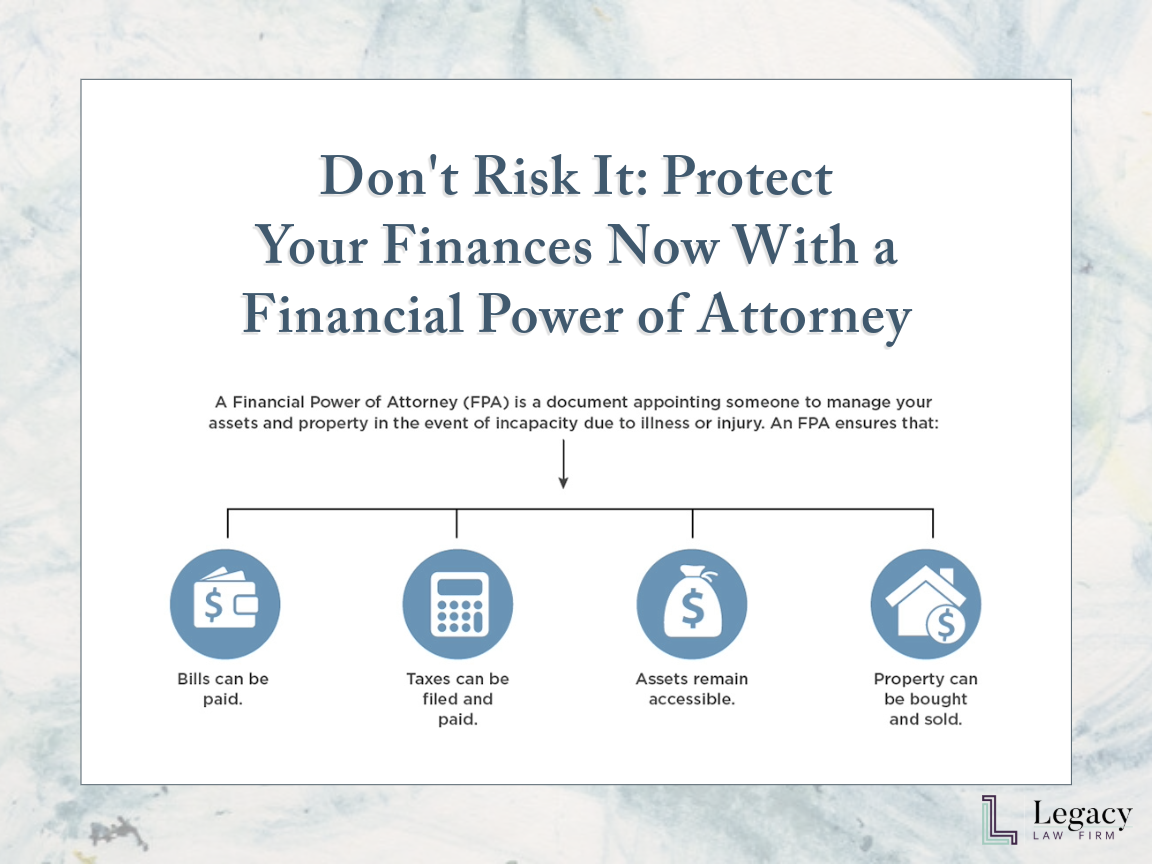Protecting Your Digital Legacy: Estate Planning in the Digital Age
With the rise in the use and ownership of digital assets, estate planning is no longer just about physical assets—it now involves protecting your digital legacy. In North Carolina, it's crucial to include provisions for your digital assets in your estate plan to ensure they are handled appropriately after your passing and not lost forever.
Let's explore what constitutes a digital asset, their significance, and steps you can take to incorporate them into your estate plan.
What are digital assets?
Digital assets encompass a wide range of electronic records and accounts, including:
Online banking and investment accounts
Social media profiles
Email and digital correspondence
Digital photos and videos – including NFTs
Cryptocurrency holdings – i.e. Bitcoin, Dogecoin, Ethereum
Domain names and websites
Why include digital assets in your estate plan?
Failing to address digital assets in your last will and testament or trust can lead to unnecessary complications and in the worst-case scenario - a complete loss of your information or assets. Some of the main reasons you should include digital assets in your estate plan include:
Privacy Concerns: Without clear instructions, loved ones may struggle to access or manage your digital accounts, leading to privacy breaches or unauthorized access.
Asset Preservation: Digital assets can have significant financial or sentimental value and including them in your estate plan ensures they're properly accounted for and transferred to beneficiaries.
Business Continuity: For individuals with online businesses or digital assets tied to their profession, ensuring continuity after death is essential for preserving the financial stability of the business and protecting assets.
Pitfalls of failing to include digital assets into your estate plan
If you are an avid news follower, you have likely seen several stories over the last few years about people losing hundreds of thousands of dollars in cryptocurrency. How does this happen?
Cryptocurrency coins reside on public blockchain ledgers, which are not centralized or overseen by a central agency. To access your cryptocurrency and prove ownership, you are provided unique private and public keys, which consist of strings of randomly generated numbers and letters. These keys are stored in your crypto wallet, which can be stored on or offline. If you forget or lose these keys, they can’t be recovered, and you will never get your money back.
By never, we mean the Taylor Swift, we are never, ever, ever getting back together type of never.
Likewise, if you don’t have a method in place to pass your public and private keys to your beneficiaries, they will not be able to access your cryptocurrency. The risk of loss is even higher if your keys are held in cold storage since your beneficiaries need to find and identify your physical storage device.
Don’t let them accidentally throw away millions while cleaning out your personal effects because you forgot to tell them about the cold storage device and its location.
Think this couldn’t happen to you? Neither did these individuals:
Swiss entrepreneur Stefan Thomas lost access to 7,002 bitcoins ($220M in 2011) stored on an IronKey USB drive when he lost the paper on which he wrote his password in 2011.
California resident Matthew Moody died in a plane crash and did not leave a record of his private key or even an inventory of the contents of his wallet. Moody was one of the first people to mine bitcoin and was believed to have thousands of bitcoins, but his family was unable to access his account the unspecified inheritance.
American businessman Matthew Mellon died owning $500M in cryptocurrency, which his estate was unable to access. His outdated will made no mention of the cryptocurrency and he reportedly stored the private keys on cold storage devices scattered across the country but did not leave a record of their locations.
British IT worker James Howell lost 7,500 bitcoins ($275M in 2021) when he accidentally threw away the hard drive storing his cold wallet.
Currently, even the most popular crypto exchanges do not support any type of beneficiary designations such as transfer on death (TOD) or payable on death (POD) accounts.
Because of the inability to designate beneficiaries and the decentralized nature of cryptocurrency, the best way to ensure that you don’t end up as a precautionary tale is to explicitly include your digital assets in your estate plan.
5 things you can do to incorporate digital assets into your North Carolina estate plan
Create an Inventory: Make a comprehensive list of all your digital assets, including login credentials, account numbers, unique access codes, and instructions for accessing each account. Don’t forget to include the list with your will and/or trust or notify your chosen fiduciary of its location.
Designate a Digital Executor: Appoint a trusted individual as your digital executor to manage and distribute your digital assets according to your wishes. This can be an individual separate from the primary Executor named in your will. Your digital executor should have experience of working with digital assets.
Update Legal Documents: Ensure your will, trust documents, and powers of attorney explicitly address the management and distribution of digital assets.
Use Online Storage Solutions: Consider using secure online storage solutions or password managers to store important digital asset information and share access with designated individuals. Several online password managers have systems in place to automatically provide your account logins and passwords to a designed individual upon your death.
Review and Update Regularly: Periodically review and update your estate plan to reflect changes in your digital asset portfolio and account information.
Estate planning in the digital age with Legacy Law Firm
Digital assets are here to stay, so incorporating digital assets into your estate plan is essential for ensuring your online presence and valuable digital assets are protected and managed according to your wishes. When you work with our experienced North Carolina estate planning attorney at Legacy Law Firm, your estate plan will address all aspects of your digital legacy.
Contact the Estate Planning and Probate Attorney at Legacy Law Firm today to schedule a consultation and ensure that the legacy you’ve built endures.














